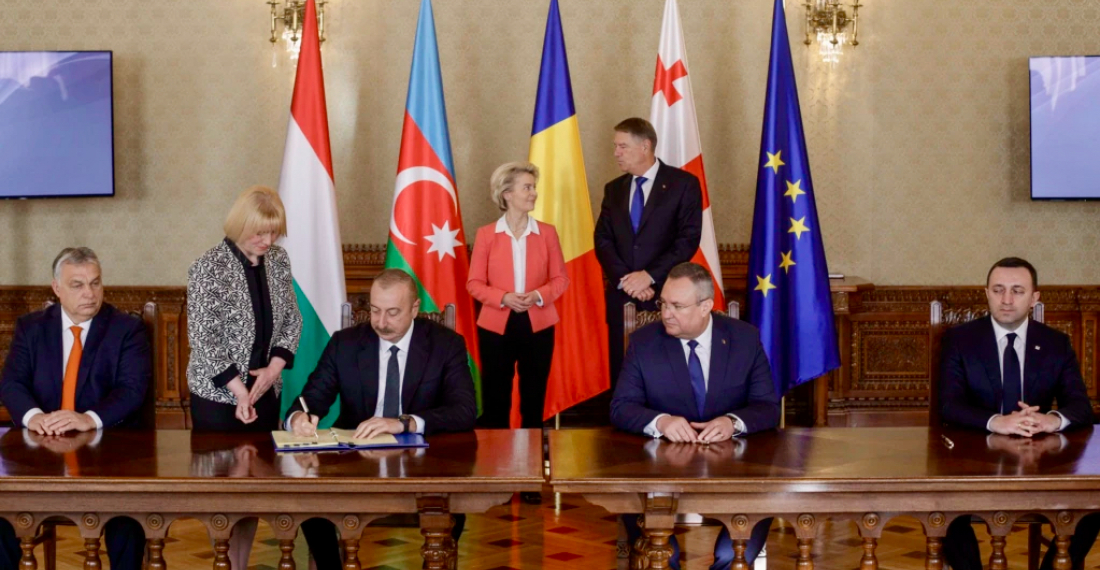On Saturday (17 December) at a meeting in Bucharest, the leaders of Azerbaijan, Georgia, Romania and Hungary signed an agreement to construct a new underwater electric cable through the Black Sea, connecting the South Caucasus region to the European Union. The cable will provide Europe with Azerbaijani energy.
European Commission President Ursula von der Leyen, who was also present at the signing ceremony, expressed the readiness of the European Commission to provide financial assistance to the project, once the feasibility study results are made available in September next year. The process for laying the cable will take six years.
Von der Leyen spoke about the importance of the project for the energy security of the European Union, adding that
"The Black Sea electric cable is a new transmission route full of opportunities. This project could bring Georgia, a country with a European destiny, great benefits as well. It could transform the country into an electricity hub and integrate it in the EU internal electricity market. Finally, the Black Sea electric cable could also help bring electricity to our neighbours in Moldova and the Western Balkans, and of course to Ukraine – it will help start rebuilding Ukraine's energy system and the reconstruction of the country.", Von der Leyen said during the ceremony.
The nearly 1,200-kilometer cable will convey electricity from Azerbaijan and Georgia to Romania and Hungary. The project is to be completed within six years.






